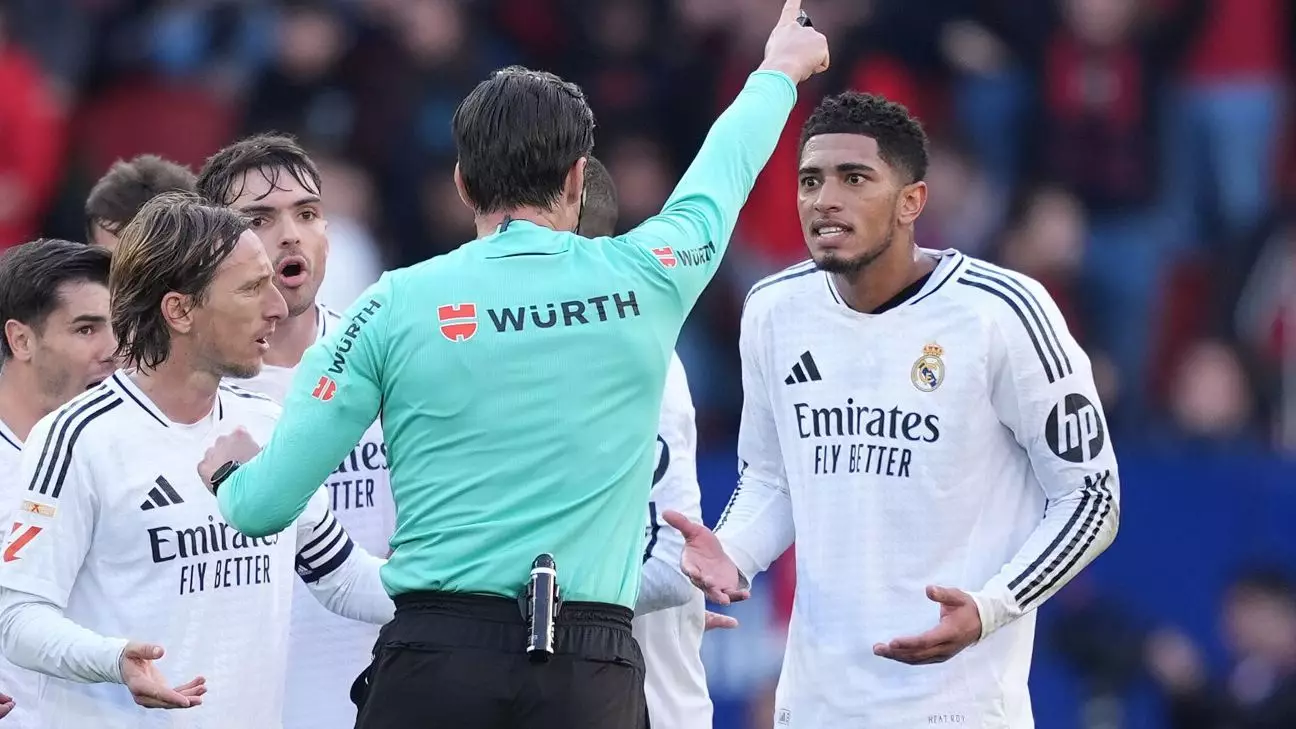In recent years, the landscape of professional football has been marred by increasing levels of hostility directed at referees. The case of Jose Munuera Montero, a referee who faced severe backlash after issuing a red card to Real Madrid’s Jude Bellingham, serves as a stark reminder of the toxic environment that match officials often navigate. Following the controversial decision during a match against Osasuna, Montero became a target for widespread abuse on social media, highlighting a disturbing trend of aggression that undermines the integrity of the sport.
The Impact on Referees and Their Families
The Royal Spanish Football Federation (RFEF) officially condemned the threats and derogatory comments directed at Montero, noting that such harassment extends beyond the officials themselves, affecting their families as well. This toxic culture of verbal violence against referees reflects a broader societal issue where aggression and hostility seep into sports culture, creating an atmosphere where referees require not just professionalism but also a thick skin to endure relentless scrutiny and abuse.
The RFEF’s statement emphasizes not only the emotional toll such experiences inflict on referees but also the alarming reality that verbal aggression frequently escalates into physical confrontations at lower levels of the sport. This pattern of behavior raises ethical questions about how the football community can foster a more respectful and supportive environment for its officials.
The incident involving Bellingham accentuates the complexities of communication during high-stakes matches. Bellingham maintained that there was a misunderstanding and that his remarks were not aimed at the referee. He described his comments as natural expressions stemming from his English background, devoid of any malicious intent. This raises a significant discussion about the interpretation of language and behavior in high-pressure environments.
The scenario illustrates how misunderstandings can quickly spiral into serious consequences, rendering players susceptible to disciplinary action under regulations concerning offensive language. Bellingham’s experience is reminiscent of many athletes who find their reputations jeopardized due to misinterpretations by officials, further fueling tensions between players and referees.
As the backlash against Montero’s decision exemplifies, a cultural shift is needed within football to address the rampant negativity towards referees. Stakeholders, including clubs, fans, and the governing bodies of the sport, must come together to establish educational programs that highlight the importance of respect and understanding for match officials.
Moreover, stringent measures should be introduced to penalize verbal abuse directed at referees, both on and off the field. By fostering a culture that champions respect for all participants in the game, football can safeguard the integrity of its competitions and ensure that referees can perform their duties without fear of abuse.
Ultimately, transforming the current narrative surrounding officiating in football is crucial. It is in the collective hands of the football community to cultivate an environment where respect reigns supreme, allowing the sport to flourish unhindered by the negativity that currently permeates it.

